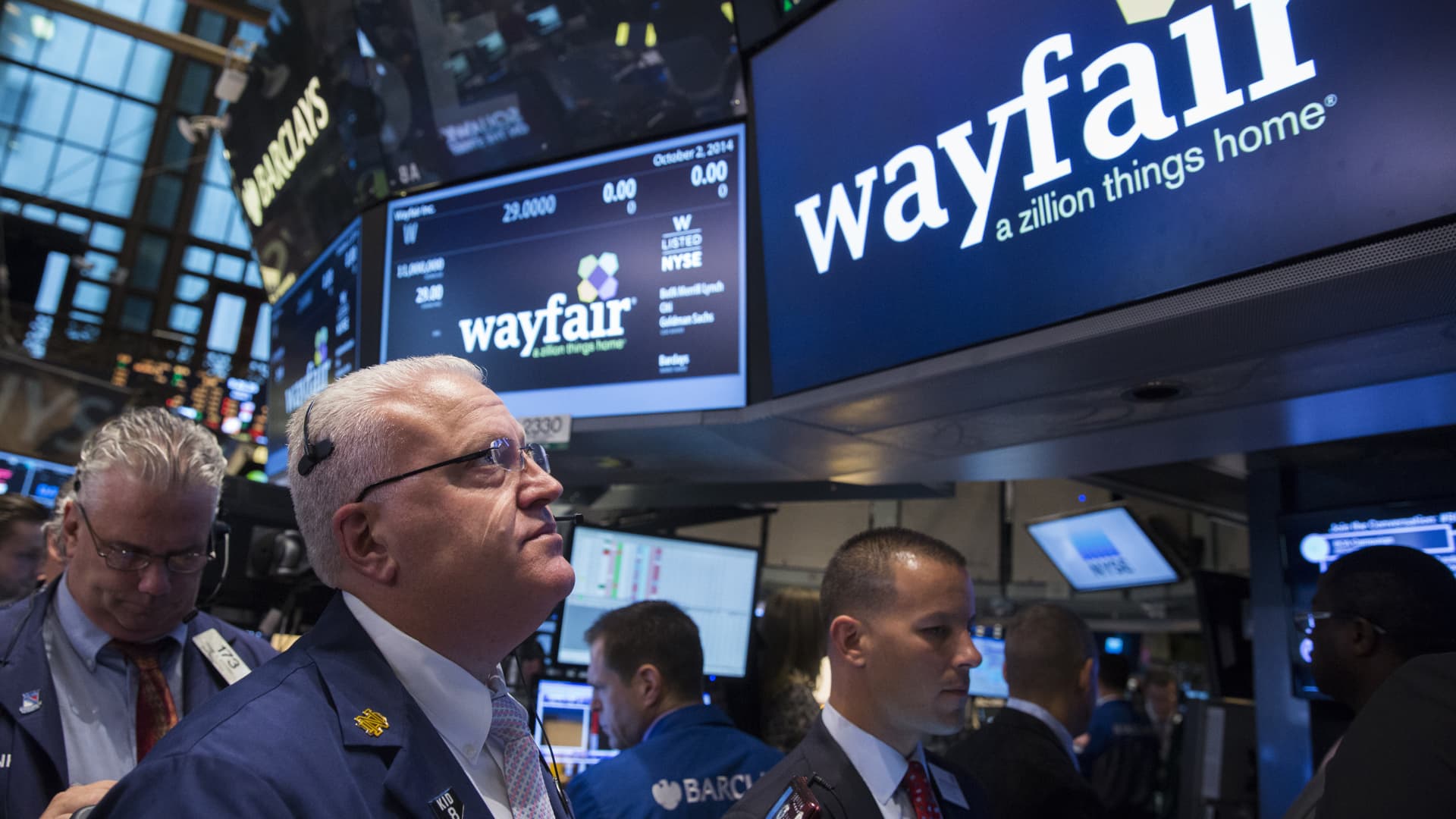Denny Walsh, a Pulitzer Prize-winning investigative reporter who was an absolute nuisance to gangsters, corrupt politicians and his editors – particularly the New York Times, which fired him – died March 29 at his home in Antelope, California , a suburb of Sacramento. He was 88.
His daughter Colleen Bartow confirmed the death. She said Mr Walsh had suffered from several respiratory illnesses.
Mr. Walsh began his career at the St. Louis Globe-Democrat in 1961, where he walked around the newsroom smoking cigars and using the floor as an ashtray.
“Walsh had the tenacity of a pit bull and seemed to be developing some facial features of the breed,” Pat Buchanan, the conservative commentator and then editor of the paper, wrote in his autobiography, “Right From the Beginning.” (1988). “His laughter was loud and uncontrolled, bordering on malevolence.”
Mr Buchanan added: “When Walsh drilled into a politician he usually did serious damage and he was always reluctant to let him go.”
Investigative reporters are an idiosyncratic breed of journalist. They are usually fearless and often cause angina in their editors. Mr. Walsh was no exception. He liked to boast that he had been sued for libel several times but had never lost a case. He was often at odds with his superiors.
In 1969, Mr. Walsh and Albert L. Delugach won the Pulitzer Prize for local investigative reporting for a series of articles exposing fraud and corruption within the St. Louis Steamfitters Union, Local 562.
The next year, Mr. Walsh wrote an article alleging that Alfonso J. Cervantes, the mayor of St. Louis, had ties to local underworld figures. G. Duncan Bauman, the newspaper’s editor, dismissed the article and later said he had called his own sources who, in his opinion, did not believe the article was accurate.
Furious, Mr. Walsh later publicly accused the editor of maintaining his own unsavory ties to the community. He resigned and joined Life magazine, which had recently launched an investigative reporting unit. He expanded his coverage of Mayor Cervantes in a story that relied heavily on unnamed federal law enforcement sources.
Mr. Cervantes sued Life and Mr. Walsh in federal court for libel, arguing that the reporter had acted maliciously and should be ordered to disclose his sources. A district judge ruled in favor of Life and Mr. Walsh.
The case ultimately reached the United States Court of Appeals, Eighth Circuit, which affirmed the lower court’s ruling against the mayor. Mr. Walsh had not acted intentionally, the court said, and the mayor had not presented “a shred of evidence to support the finding that any of the defendants actually had serious doubts about the truth of a single sentence in the article.” The US Supreme Court declined to hear the case.
Mr. Walsh joined the Times’ Washington bureau in 1973 at the height of the Watergate scandal – a story that had been dominated by Washington Post reporters Bob Woodward and Carl Bernstein. The Times hired Seymour Hersh, an FBI reporter who won a Pulitzer Prize for exposing the My Lai massacre during the Vietnam War, to help the paper catch up.
“I try to write down bits and pieces, but Woodward and Bernstein were so far ahead, and I didn’t really know anyone in the White House,” Mr. Hersh said in an interview. “And then Denny shows up, this big, burly guy who’s always chewing on a cigar.”
Mr. Walsh wasn’t interested in Watergate; He wanted to continue reporting on the connection between politicians and the criminal underworld. He offered to connect Mr. Hersh with a source who could help with Watergate. “It was someone who was in the thick of things,” Mr. Hersh said. “And suddenly I had what you need – someone inside me.”
Mr. Walsh turned his attention to Joseph Alioto, the mayor of San Francisco. Look magazine recently published a cover article in which he was accused of several ties to the mafia. Mr. Alioto sued the magazine for libel and won. However, Mr. Walsh’s sources told him a different version of events – that the mayor had lied during his testimony in the case.
After staying in a San Francisco hotel for three months to investigate, Mr. Walsh filed a detailed report on the matter. A hullabaloo followed.
AM Rosenthal, the Times’ executive editor, refused to publish the article. According to letters and memos in a collection of his work at the New York Public Library, he did not believe the piece significantly advanced Look magazine’s publications.
Mr. Walsh was apoplectic. This was also true for Mr. Hersh. “After some discussion about the quality of the piece and its publishability,” Mr. Walsh wrote in a letter to Mr. Rosenthal, “I asked Hersh if he had any suggestions as to who might be interested in it.”
Mr. Hersh suggested Rolling Stone, and Mr. Walsh provided the editors with a copy of the article. Not long afterward, Mr. Rosenthal learned that another copy had been leaked to More, a magazine that covered the media.
Now Mr. Rosenthal was apoplectic. According to More, he ordered an investigation into how the magazine obtained the article, which remains unclear today. (It did not appear anywhere in print, but is included in Mr. Rosenthal’s papers.)
He also fired Mr. Walsh.
“The harm to the Times and journalism is that you intentionally sent this story to another publication,” Mr. Rosenthal wrote in his 1974 resignation letter.
Brit Hume, the Fox News political analyst and then-editor of More in Washington, published a long article about the palace intrigue. He speculated that Mr. Rosenthal’s decision not to publish Mr. Walsh’s article was influenced by executives at Cowles Communications, which owned Look and was a major shareholder in the Times.
Mr. Rosenthal did not mention Cowles in his letter to Mr. Walsh or in a memo to Times editor Arthur Ochs Sulzberger.
“I have decided not to print the article,” he wrote to Mr. Sulzberger, “simply because I do not believe it is a story that further advances the Alioto affair journalistically.” He added: “Incidentally “I am completely satisfied with the accuracy of the statements in the story.”
Denny Jay Walsh was born on November 23, 1935 in Omaha. His father, Gerald Walsh, was an auto mechanic. His mother, Muriel (Morton) Walsh, was a beautician.
Denny grew up in Kansas and worked in a movie theater that ran the projector. One of the films he showed was “The Turning Point” (1952), in which William Holden played a reporter who took on corrupt officials. Denny saw this character as a future version of himself.
He enrolled at the University of Missouri in 1954 but dropped out to join the Marines. He returned to school in 1958, studied journalism and graduated in 1962.
After the Times fired him, Mr. Walsh led an investigative reporting team for the McClatchy newspaper chain. In 1983, his investigation of a casino co-owned by Paul Laxalt, a former U.S. senator from Nevada, led to another libel lawsuit in The Sacramento Bee, one of the company’s newspapers. Mr. Laxalt later dropped the case.
Mr. Walsh married Angela Sharp in 1960. They divorced in 1964. He married Peggy Moore in 1966; She died in 2023. In addition to his daughter, he is survived by a son, Sean, and seven grandchildren.
Mr. Walsh also wore down his editors in Sacramento.
“There I was in early 1991,” he said upon his retirement in 2016. “Fifty-five years old, couldn’t afford to retire and no longer wanted to be at The Bee.”
He said he had been classified as a “disruptive presence.” His editors assigned him to report on the federal courthouse. He stayed in tune for 25 years. He was a popular figure at the court, especially among the judges.
Chief U.S. District Judge Kimberly J. Mueller told The Bee, “I regularly had lunch with Denny to find out what was really happening here.”
Source link
2024-04-21 18:40:28
www.nytimes.com















